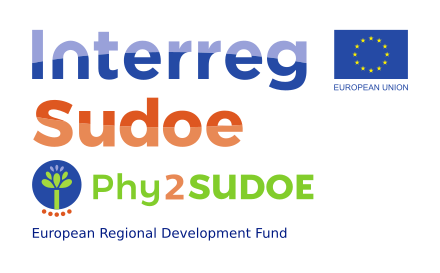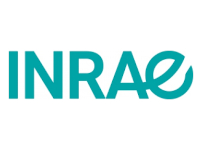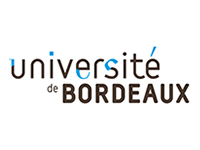Brief description
INRAE is the French National Institute for Research on Agriculture, Food, and the Environment. INRAE is a public body institute and the first research institute specialized in agricultural science, food and environment in the world. It is a community of 12,000 people, with 18 regional centers throughout France. INRAE’s main goal is to be a key player in the transitions necessary to address major global challenges.
INRAE missions are to carry out, organize, and coordinate -on its own initiative or in response to a governmental request- all types of scientific and technological research in the domains of agriculture, food, forestry, the environment, water resources, biodiversity, the bioeconomy, the circular economy, the sustainable management of regions, and risk management in the research fields mentioned above. INRAE is developing solutions involving multi-performance agriculture, high-quality food, and the sustainable management of resources and ecosystems. INRAE has 14 scientific divisions, strongly encourages interdisciplinarity, and is regularly involved in research and management for EU projects.
BIOGECO (UMR INRAE 1202) is a Joint Research Unit between the French National Institute for Research on Agriculture, Food, and the Environment (INRAE) and the University of Bordeaux. It aims at elucidating mechanisms shaping biological diversity in terrestrial ecosystems from genes, individual species and populations, up to communities. Its research teams are organized in 3 axis: (1) Responses of populations and communities to global changes; (2) Functions and services related to biodiversity, and (3) Conservation and restauration of populations and communities. BIOGECO has extensive skill in Ecological engineering and remediation of ecological functions underlying ecosystem services such as biomass production for the Bio-economy on degraded and contaminated (marginal) land, gained under EU projects (e.g. Sumatecs, Greenland, INTENSE, Begin, BioFoodonMars, GOLD). It provides tools to assess land remediation and pollutant linkages, ecological functions in line with provisioning and regulation services (including biomass production, C sequestration, contaminant cycle, etc.), and biotic interactions. It has access to 7 phytomanaged field trials with various plant assemblies and ecosystem trajectories (grassland, short rotation coppices, tree plantations, high yielding crops, and perennial grasses) and various scenarios (e.g. phytomanagement/remediation of brownfields, restoration of biodiversity and grassland on degraded land, rehabilitation of former mining areas). BIOGECO offers lab-based ecological, biogeochemical, and genomic analyses, mesocosms, climatic chambers to model global change, and greenhouse facilities. BIOGECO collaborates with SMEs on the use of biomass for the Bio-economy.




